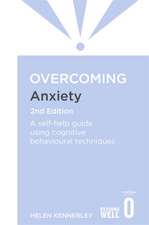Reasoning and Public Health: New Ways of Coping with Uncertainty
Autor Louise Cummingsen Limba Engleză Hardback – 9 apr 2015
The book draws upon public health issues as wide ranging as infectious diseases, food safety and the potential impact on human health of new technologies. It examines reasoning in the context of these issues within a large-scale, questionnaire-based survey of nearly 900 members of the public in the UK. In addition, several philosophical themes run throughout the book, including the nature of uncertainty, scientific knowledge and inquiry.
The complexity of many public health problems demands an approach to reasoning that cannot be accommodated satisfactorily within a general thinking skills framework. This book shows that by developing an awareness of these reasoning strategies, scientists and members of the public can have a more productive engagement with public health problems.
| Toate formatele și edițiile | Preț | Express |
|---|---|---|
| Paperback (1) | 713.70 lei 6-8 săpt. | |
| Springer International Publishing – 6 oct 2016 | 713.70 lei 6-8 săpt. | |
| Hardback (1) | 720.68 lei 6-8 săpt. | |
| Springer International Publishing – 9 apr 2015 | 720.68 lei 6-8 săpt. |
Preț: 720.68 lei
Preț vechi: 758.60 lei
-5% Nou
Puncte Express: 1081
Preț estimativ în valută:
137.90€ • 144.35$ • 114.78£
137.90€ • 144.35$ • 114.78£
Carte tipărită la comandă
Livrare economică 31 martie-14 aprilie
Preluare comenzi: 021 569.72.76
Specificații
ISBN-13: 9783319150123
ISBN-10: 331915012X
Pagini: 242
Ilustrații: XIII, 242 p. 15 illus.
Dimensiuni: 155 x 235 x 20 mm
Greutate: 0.54 kg
Ediția:2015
Editura: Springer International Publishing
Colecția Springer
Locul publicării:Cham, Switzerland
ISBN-10: 331915012X
Pagini: 242
Ilustrații: XIII, 242 p. 15 illus.
Dimensiuni: 155 x 235 x 20 mm
Greutate: 0.54 kg
Ediția:2015
Editura: Springer International Publishing
Colecția Springer
Locul publicării:Cham, Switzerland
Public țintă
ResearchCuprins
Chapter One: The Challenge for Public Health.- Chapter Two: Philosophy and Public Health.- Chapter Three: Argument from Ignorance.- Chapter Four: Argument from Authority.- Chapter Five: Argument from Analogy.- Chapter Six: Circular Argument.- Chapter Seven: Fallacies in Public Health.- Chapter Eight: Theory of Public Health Reasoning.- Bibliography.- Index.
Textul de pe ultima copertă
This book argues that in order to be truly effective, public health must embrace a group of reasoning strategies that have traditionally been characterized as informal fallacies. It will be demonstrated that these strategies can facilitate judgements about complex public health issues in contexts of uncertainty.
The book explains how scientists and lay people routinely resort to the use of these strategies during consideration of public health problems. Although these strategies are not deductively valid, they are nevertheless rationally warranted procedures. Public health professionals must have a sound understanding of these cognitive strategies in order to engage the public and achieve their public health goals.
The book draws upon public health issues as wide ranging as infectious diseases, food safety and the potential impact on human health of new technologies. It examines reasoning in the context of these issues within a large-scale, questionnaire-based survey of nearly 900 members of the public in the UK. In addition, several philosophical themes run throughout the book, including the nature of uncertainty, scientific knowledge and inquiry.
The complexity of many public health problems demands an approach to reasoning that cannot be accommodated satisfactorily within a general thinking skills framework. This book shows that by developing an awareness of these reasoning strategies, scientists and members of the public can have a more productive engagement with public health problems.
The book explains how scientists and lay people routinely resort to the use of these strategies during consideration of public health problems. Although these strategies are not deductively valid, they are nevertheless rationally warranted procedures. Public health professionals must have a sound understanding of these cognitive strategies in order to engage the public and achieve their public health goals.
The book draws upon public health issues as wide ranging as infectious diseases, food safety and the potential impact on human health of new technologies. It examines reasoning in the context of these issues within a large-scale, questionnaire-based survey of nearly 900 members of the public in the UK. In addition, several philosophical themes run throughout the book, including the nature of uncertainty, scientific knowledge and inquiry.
The complexity of many public health problems demands an approach to reasoning that cannot be accommodated satisfactorily within a general thinking skills framework. This book shows that by developing an awareness of these reasoning strategies, scientists and members of the public can have a more productive engagement with public health problems.
Caracteristici
Argues that in order to be truly effective, public health scientists must develop reasoning skills that are adapted to public health issues Draws upon public health issues as wide ranging as infectious diseases, food safety and the safety of prescribed drugs and medical interventions Reports on a large-scale, questionnaire-based survey of both members of the public and public health professionals in the US and UK
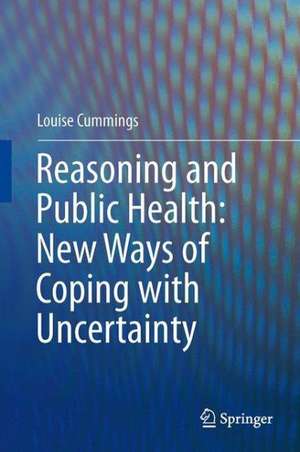

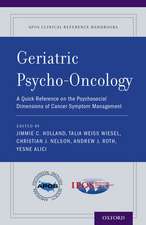

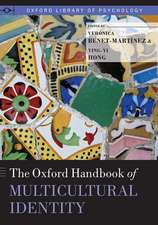

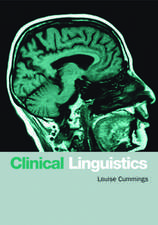



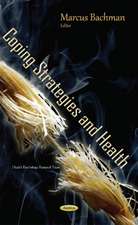

![Promoting Psychological Well-Being in Children with Acute and Chronic Illness: A Step-By-Step Resource [With CD (Audio)]](https://i2.books-express.ro/bt/9781843109679/promoting-psychological-well-being-in-children-with-acute-and-chronic-illness.jpg)
